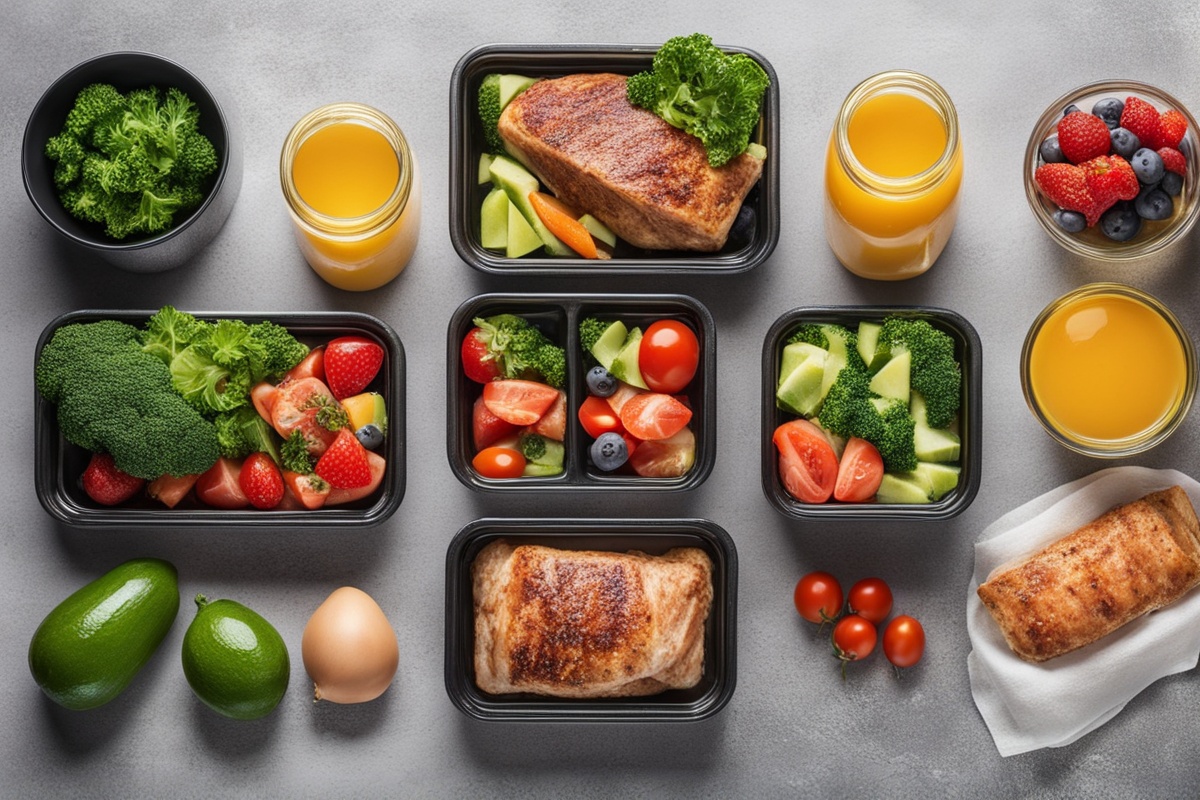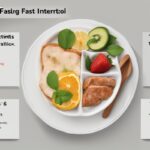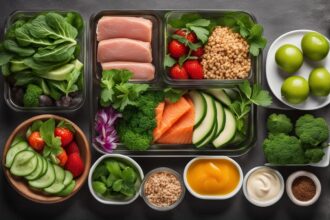Hey there, fasting enthusiasts! If you’ve ever struggled with staying on track during a fast or felt overwhelmed by what to eat when breaking one, you’re not alone. Fasting, whether it’s intermittent fasting, a 24-hour fast, or a religious practice, can be a powerful tool for health and mindfulness. But let’s be honest—without proper planning, it’s easy to derail your efforts with impulsive food choices or inadequate nutrition. That’s where fasting meal prep comes in. In this ultimate guide, I’m sharing actionable fasting tips to help you prepare meals that support your goals, keep you energized, and make the process seamless. We’ll dive into the why, how, and what of meal prepping for fasting, backed by science and sprinkled with practical advice. Let’s get started on making fasting a sustainable part of your lifestyle!
Why Meal Prep Matters for Fasting Success
When you’re fasting, whether for weight loss, improved metabolism, or spiritual reasons, the periods when you do eat are just as important as the fasting itself. Meal prep ensures you’re not caught off guard, reaching for processed snacks or overeating due to hunger. Studies show that structured eating patterns, like those supported by meal prep, can enhance the benefits of intermittent fasting, such as improved insulin sensitivity and reduced inflammation (Patterson & Sears, 2017). By planning ahead, you’re setting yourself up to nourish your body with balanced meals that align with your fasting schedule. Plus, it saves time and reduces decision fatigue—two things anyone on a fasting journey can appreciate. So, let’s explore how meal prep ties directly into effective fasting strategies.
Understanding Your Fasting Window and Nutritional Needs
Before diving into meal prep, it’s crucial to understand your specific fasting protocol and how it impacts your nutritional needs. Are you following a 16:8 intermittent fasting plan (16 hours fasting, 8 hours eating), a 5:2 method (5 normal eating days, 2 low-calorie days), or something else? Each approach requires a tailored strategy for when and what to eat. During eating windows, your body needs a balance of macronutrients—proteins, fats, and carbs—to replenish energy stores and support muscle maintenance (Tinsley & La Bounty, 2015). Micronutrients like vitamins and minerals are also key to combat potential deficiencies during restricted eating periods. A good fasting tip is to prioritize nutrient-dense foods over empty calories. Think lean proteins, healthy fats like avocado, and complex carbs like quinoa. Knowing your fasting window helps you time your prep so meals are ready when you are.
Essential Fasting Tips for Effective Meal Prep
Now that you’ve got the basics down, let’s get into the nitty-gritty of preparing meals that complement your fasting lifestyle. These fasting tips are designed to keep you on track, even on the busiest days. I’ve learned through trial and error that a little forethought goes a long way, and I’m excited to share what works best.
- Batch Cook for Efficiency: Prepare large portions of versatile foods like grilled chicken, roasted veggies, or brown rice. These can be mixed and matched for different meals during your eating window.
- Focus on High-Protein Meals: Protein helps with satiety and muscle repair, especially after long fasting periods. Include options like eggs, tofu, or lentils in your prep (Leidy et al., 2015).
- Portion Control is Key: Pre-portion meals into containers to avoid overeating. Use small containers or baggies for snacks like nuts to keep calories in check.
- Hydration Helpers: Prep infused water or herbal teas to sip during fasting windows. Staying hydrated can curb false hunger signals.
Best Foods to Include in Your Fasting Meal Prep
Choosing the right foods for your fasting meal prep can make or break your experience. The goal is to maximize nutrition while keeping meals satisfying. Research suggests that diets rich in whole, unprocessed foods improve metabolic health outcomes during fasting (Anton et al., 2018). With that in mind, let’s look at some top picks for your fasting meal plans that I’ve found incredibly helpful—and tasty, too!
- Leafy Greens: Spinach, kale, and arugula are low-calorie, high-fiber options that bulk up meals without overloading on calories.
- Healthy Fats: Avocado, olive oil, and nuts provide sustained energy and support brain health during fasting.
- Lean Proteins: Chicken breast, turkey, or plant-based options like chickpeas help maintain muscle mass.
- Complex Carbohydrates: Sweet potatoes, oats, and whole grains offer slow-releasing energy to avoid spikes and crashes.
- Fermented Foods: Yogurt, kefir, or sauerkraut support gut health, which can be impacted by fasting schedules (Zmora et al., 2019).
Timing Your Meals: A Critical Fasting Strategy
One of the most overlooked fasting tips is the importance of meal timing. When you eat after a fast can influence how your body processes nutrients and maintains energy levels. For instance, breaking a fast with a balanced meal containing protein and healthy fats can stabilize blood sugar and prevent overeating later (Mattson et al., 2017). If you’re on a 16:8 plan, try scheduling your first meal about an hour after your fasting window ends to ease your digestive system back into action. I’ve noticed that eating too soon or too heavily right after fasting can leave me feeling sluggish. Prepping meals in advance ensures you’ve got something ready to go at the right time, so you’re not tempted to grab whatever’s closest. Another fasting hack is to keep lighter meals for the start of your eating window and save heartier ones for later when your body’s more adjusted.
Common Pitfalls to Avoid in Fasting Meal Prep
Even with the best intentions, fasting meal prep can come with challenges. I’ve made plenty of mistakes along the way, and I want to help you avoid them. One major pitfall is underestimating calorie needs—fasting doesn’t mean starving yourself, and insufficient calories can lead to fatigue or binge eating (Johnstone, 2015). Another issue is monotony; eating the same prepped meals daily can sap motivation. Mix up flavors and textures to keep things exciting. Also, don’t skimp on hydration during fasting windows—dehydration can mimic hunger and throw off your focus. Lastly, avoid over-relying on processed “quick fixes” for meal prep. While they’re convenient, they often lack the nutrients your body craves post-fast. Stick to whole foods as much as possible for optimal fasting health benefits.
In wrapping up, fasting meal prep is a game-changer for anyone looking to make their fasting journey smoother and more effective. By incorporating these fasting tips—from understanding your nutritional needs to timing meals and choosing the right foods—you’re not just surviving your fast, you’re thriving through it. Remember, this isn’t about perfection; it’s about progress. Start small, experiment with what works for your body, and tweak as you go. I’ve seen firsthand how a little planning can transform fasting from a chore into a rewarding habit. So, grab those containers, prep a few meals, and take control of your fasting success. What’s your go-to fasting meal prep tip? Drop it in the comments—I’d love to hear how you make fasting work for you!
References
- Anton, S. D., Moehl, K., Donahoo, W. T., Marosi, K., Lee, S. A., Mainous, A. G., … & Mattson, M. P. (2018). Flipping the metabolic switch: Understanding and applying the health benefits of fasting. Obesity, 26(2), 254-268.
- Johnstone, A. (2015). Fasting for weight loss: An effective strategy or latest dieting trend? International Journal of Obesity, 39(5), 727-733.
- Leidy, H. J., Clifton, P. M., Astrup, A., Wycherley, T. P., Westerterp-Plantenga, M. S., Luscombe-Marsh, N. D., … & Mattes, R. D. (2015). The role of protein in weight loss and maintenance. The American Journal of Clinical Nutrition, 101(6), 1320S-1329S.
- Mattson, M. P., Longo, V. D., & Harvie, M. (2017). Impact of intermittent fasting on health and disease processes. Ageing Research Reviews, 39, 46-58.
- Patterson, R. E., & Sears, D. D. (2017). Metabolic effects of intermittent fasting. Annual Review of Nutrition, 37, 371-393.
- Tinsley, G. M., & La Bounty, P. M. (2015). Effects of intermittent fasting on body composition and clinical health markers in humans. Nutrition Reviews, 73(10), 661-674.






